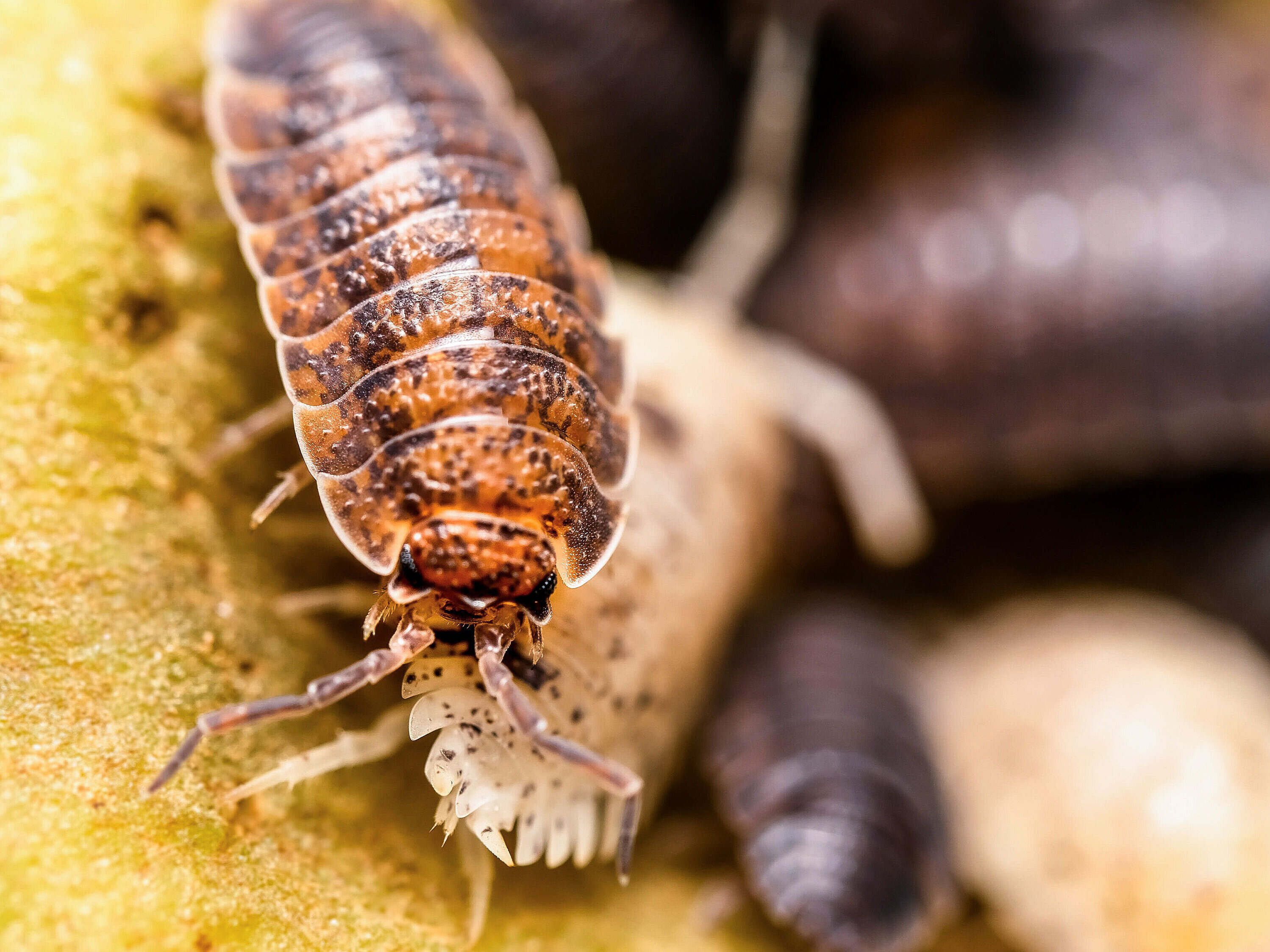When the woodlouse is attacked by a predator, it secretes a fluid from glands on the side of its body. This liquid immediately becomes sticky and viscous. Once the predator comes into contact with it, it immediately leaves the woodlouse alone. “We were fascinated by the fact that the abundant common rough woodlouse is hardly ever hunted by predators. At the same time, very little is known about the defence mechanisms of crustaceans,” says Dr. Andreas Fischer, Postdoctoral Research Associate at the University of Greifswald’s Institute of Zoology. Unlike insects, whose chemical defence strategies have been well researched, Fischer and his colleagues found no studies that examined chemical defence in crustaceans. “That's why we wanted to find out whether woodlice also have a chemical arsenal and what it consists of,” explains Dr. Andreas Fischer.
In laboratory experiments, Fischer was able to show that spiders of the species Steatoda grossa readily preyed on beetles (Tenebrio molitor), but steered clear of the chemically protected woodlice. When beetles were artificially treated with woodlouse secretions, the spiders also rejected them as prey. This prompted the team to examine the secretions using modern analysis methods. The researchers identified four chemical compounds using gas and liquid chromatography in combination with mass spectrometry. Three of these were previously unknown to exist in the natural world.
“Our experiment showed that woodlice have a chemical defence mechanism – similar to many insects,” says Dr. Andreas Fischer. “These findings provide important insights into the evolution of defence mechanisms in crustaceans and expand our knowledge of chemical strategies in the struggle for survival between predator and prey.”
Further information
Publication: Fischer Andreas, Gries Regine, Roman-Torres Camila A., Devireddy Anand and Gries Gerhard, 2025. Glandular quinoline-derivates protect crustacean woodlice from spider predation J. R. Soc. Interface. 2220250260, http://doi.org/10.1098/rsif.2025.0260
Link to the staff page
Contact at the University of Greifswald
Andreas Fischer Ph.D. M.P.M.
Postdoctoral Research Associate
Loitzer Straße 26, 17489 Greifswald
Tel: +49 3834 420 4286
andreas.fischeruni-greifswaldde
Website: www.animal-metabolomics.com
Bluesky: https://bsky.app/profile/andifischer10.bsky.social
Researchgate: https://www.researchgate.net/profile/Andreas-Fischer-20


